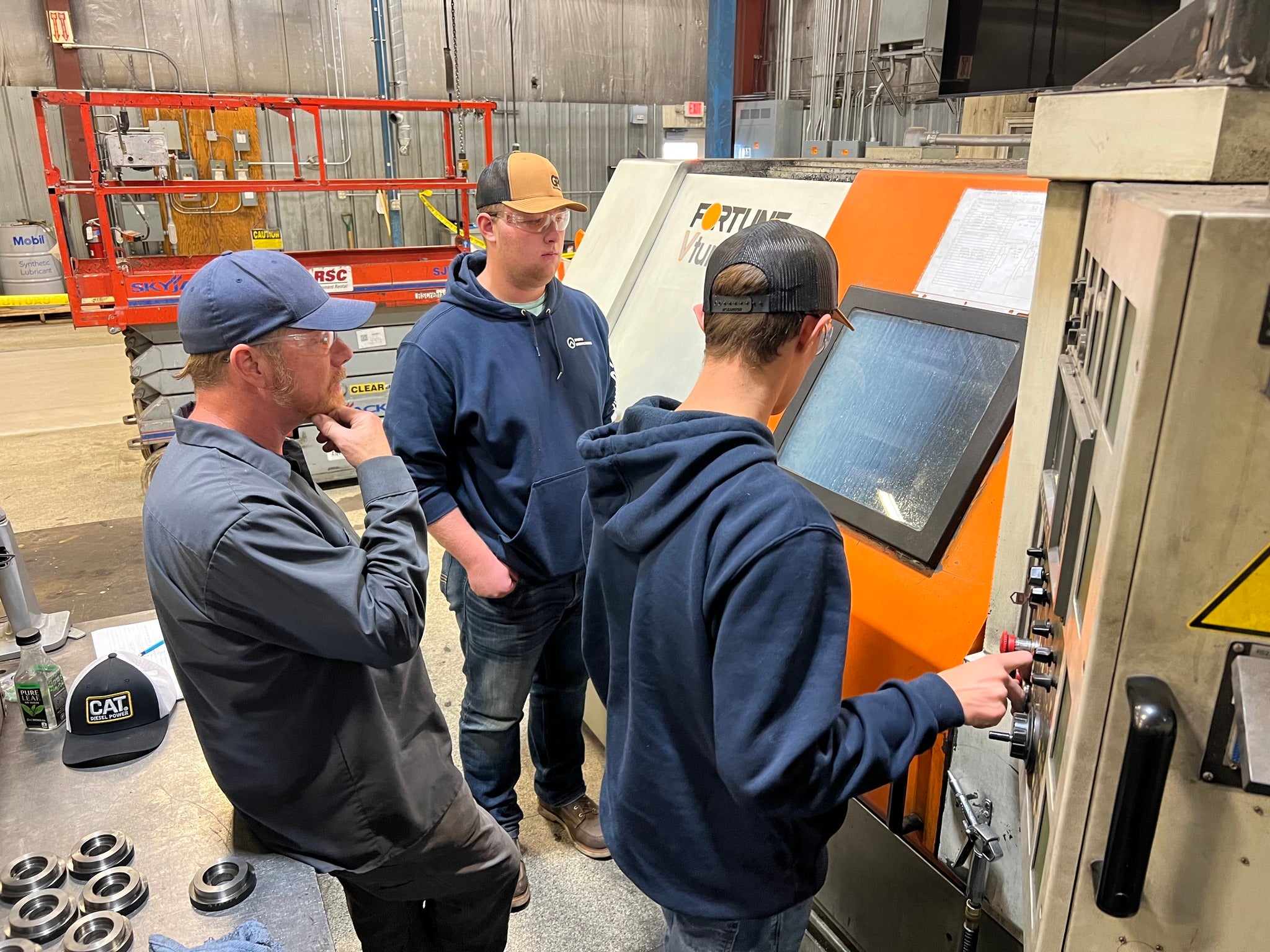A partnership between the University of Wisconsin-Whitewater and area high schools is giving students a leg up on financial literacy and a chance to earn college credits.
The university officially launched the three-credit online financial literacy course this fall semester, and high schoolers can join college students in the class. The course helps students learn about budgeting, investing and building credit.
Mark Gmach came back to his alma mater to teach the class after retiring from the financial service industry. He said the course helps students get ahead by offering a basic understanding of fiscal responsibility.
News with a little more humanity
WPR’s “Wisconsin Today” newsletter keeps you connected to the state you love without feeling overwhelmed. No paywall. No agenda. No corporate filter.
“We tend to learn personal finance in layers as we experience life. But if (you) have a working knowledge, or a concept, that kind of sticks with (you), those are things that are going to serve you well in your financial life,” Gmach said.
Personal Finance 101 is offered through the UW-Whitewater Partners in Education program. High schools that opt into the partnership can offer their students college-level classes for credit in subjects including science, foreign language and political science. This personal finance course is open to high schoolers across the state.
The program gives high school students a chance to earn college credit at a discounted rate while kickstarting a degree.
Wisconsin high school students will have to complete at least a half-credit of personal financial literacy to graduate high school under a new law signed recently by Gov. Tony Evers.
David Bashaw, professor of economics at UW-Whitewater, said it’s never to early to start learning financial literacy. He suggests students first get introduced to the concept by budgeting allowance.
“It just becomes innate when you start it in elementary school and reinforce it in middle school and then high school and then college, just so that it’s just a second nature almost,” Bashaw said.
State law requires that financial literacy be incorporated into the curriculum in grades K-12. Before this year, legislative efforts to mandate that students pass a financial literacy course as part of their high school graduation requirements have failed to become law.
Cliff Robb, professor of consumer science at UW-Madison, supports mandating financial literacy in schools, saying “practical information” should be a priority.
“I think that’s a huge disservice to expect people to enter an advanced economy with no training on how that economy operates and what the products are in that economy,” Robb said.
A 2022 study found that more Americans are living paycheck to paycheck. The Financial Industry Regulatory Authority found that the more financial literacy a person has, the more money they save.
Cliff said a well-informed marketplace minimizes bad actors.
“You think about all the different people out there that are essentially trying to make money using either misinformation or poorly constructed products and essentially counting on people being ignorant,” Robb said.
A 2019 study by a UW-Madison professor found more than one out of four American adults reported using alternative financial services like auto title loans and payday loans. High fees and interest rates for those products make the loans difficult to pay off, creating a financial trap for borrowers.
According to the study, financial education mandates significantly reduced the likelihood and frequency of payday borrowing in particular.
Robb said many people shut down when they have to make financial decisions. He said one goal of financial literacy is to make people comfortable.
“If they lack confidence in their ability to make choices, they’re going be less likely to engage,” Robb said.
Gmach teaches his students about compound interest with an apocryphal quote attributed to Albert Einstein, who he said called it the eighth wonder of the world.
“Those who understand it earn it, and those who don’t, pay it,” Gmach said.
Wisconsin Public Radio, © Copyright 2026, Board of Regents of the University of Wisconsin System and Wisconsin Educational Communications Board.







